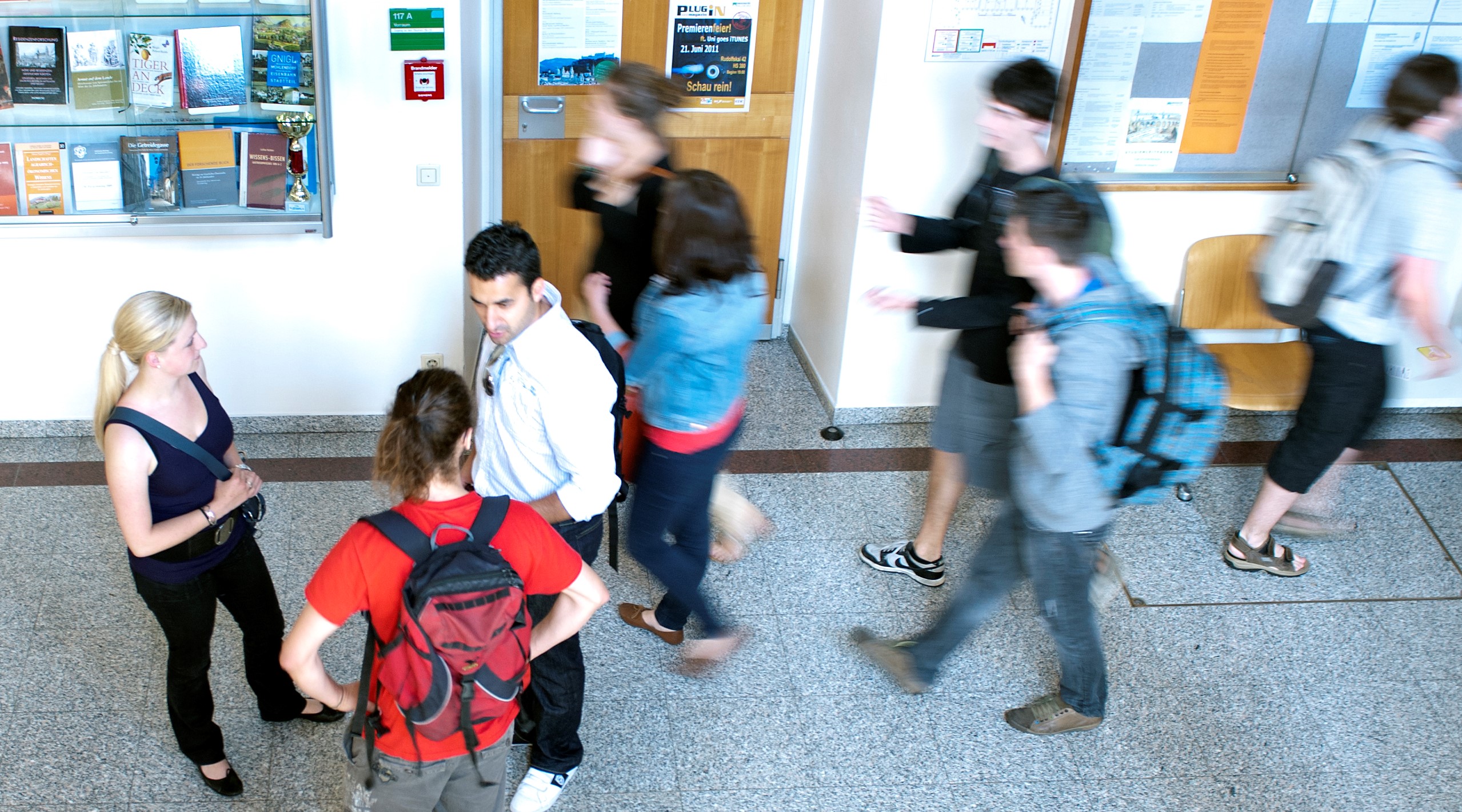FWF project: DIVCOMP SPACES
Technology to connect people
How can interactive technology help to turn corridors or break rooms in schools into places to meet and connect with very diverse people? The FWF-funded project “DivComp Spaces”, led by Christopher Frauenberger from the HCI at PLUS, is taking on this question.
In increasingly pluralistic societies, one of the central challenges of our time is to enable a unifying togetherness without destructive conflicts.
The main patterns in exclusion and marginalisation follow different diversity characteristics, which overlap and interact with each other. For example, gender roles, disabilities, age, political views, cultural background or socio-economic status.
The “Diversity Computing” concept
Digital technology plays a key role in the mechanisms of differentiation, i.e. social demarcation from others, online as well as in person. This project explores how interactive technologies can be used to create intelligent physical spaces where diverse groups of people can share meaningful and unifying experiences. It builds on the concept of diversity computing, which critically questions the normative qualities of digital technology and seeks to offer constructive alternatives.
In context: Communal spaces in schools
The context in which we hope to create such technology-enhanced spaces are the communal spaces in schools. These are, for example, corridors, break rooms or school playgrounds. These are where very different groups of children and young adults come together and where complex processes of exclusion and marginalisation emerge.
Creating meeting places and togetherness with technology
So how can interactive technology contribute to turning these spaces into meeting places and communal areas for very diverse people?
Designing these spaces, we call them DivComp Spaces, brings a number of challenges. On the one hand, we need new, participatory methods to negotiate technological design with diversity in mind. On the other, we need technical innovation that connects diverse ways of interacting to enable shared experiences. More research is needed to understand the role of technology in the complex processes of exclusion and marginalisation.
DivComp Spaces are spaces that make sense to people in different ways, but still offer a common framework. They are designed for encounters and participation that enable constructive, respectful and non-violent engagement rather than negative exclusion and conflict.
This counters the dominant roles of technology promoting sameness and individualism with a vision of plurality and togetherness.
____________________
The project is being funded by the Austrian Science Fund (FWF) for a period of 3 years [P34226] and started in July 2021.
Project homepage: https://divcomp.frauenberger.name (in German)





